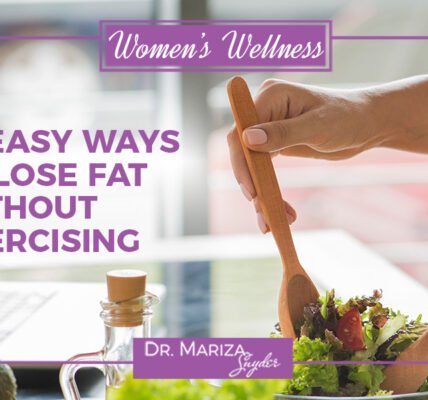In today’s fast-paced world, staying healthy is more important than ever. Our immune system plays a vital role in protecting our body from illnesses and infections. To maintain a strong immune system, one of the best things you can do is provide your body with the right nutrients. Certain best vitamins for boosting immune system naturally are essential for supporting your body’s defenses and promoting overall health.
In this article, we will explore the top vitamins and immune boosting supplements that can help strengthen your immune system. We’ll discuss how they work, their benefits, and how you can incorporate them into your daily routine for optimal health.
Why Vitamins Are Crucial for Immune Health
Vitamins are essential nutrients that your body needs to perform a variety of functions. When it comes to immunity, certain vitamins play key roles in supporting immune cells, reducing inflammation, and helping the body respond to pathogens. Incorporating the best vitamins for boosting immune system naturally into your diet can significantly improve your body’s ability to defend itself against viruses, bacteria, and other harmful invaders.
Key Functions of Vitamins in Immune Support:
- Enhance white blood cell production: White blood cells are crucial for identifying and destroying pathogens.
- Antioxidant properties: Vitamins like Vitamin C neutralize harmful free radicals, reducing inflammation and supporting immune health.
- Regulate immune response: Some vitamins help modulate the immune response, ensuring it’s not too weak or too overactive.
Top Vitamins for Boosting the Immune System Naturally
There are a variety of vitamins that are essential for boosting your immune system naturally. Let’s dive into the best vitamins for boosting immune system naturally, their specific roles, and how you can easily add them to your diet.
1. Vitamin C – The Immune-Boosting Superstar
Vitamin C is perhaps the most well-known vitamin for immune support. It’s an antioxidant that helps protect cells from oxidative stress and plays a critical role in supporting various immune system functions. Regular intake of Vitamin C can reduce the duration and severity of colds, improve the production of white blood cells, and promote overall immune health.
Benefits of Vitamin C for Immune Health:
- Increases the production of white blood cells
- Enhances the function of immune cells
- Acts as a powerful antioxidant
- Helps reduce inflammation
Best Sources of Vitamin C:
- Citrus fruits (oranges, lemons, grapefruits)
- Strawberries
- Bell peppers
- Broccoli
- Kiwi
2. Vitamin D – Vitamin D Immune Support
Vitamin D plays a vital role in immune function, and a deficiency in this vitamin has been associated with an increased risk of infections, including respiratory illnesses. During the winter months, Vitamin D immune support becomes especially important, as sunlight exposure is often limited. Since our bodies produce Vitamin D through sunlight, it’s essential to ensure we are getting enough through diet or supplements during this time
Benefits of Vitamin D:
- Enhances the pathogen-fighting effects of immune cells like T-cells and macrophages
- Helps regulate the immune response to prevent overreactions
- Supports healthy bone and muscle function
Best Sources of Vitamin D:
- Sunlight exposure
- Fatty fish (salmon, mackerel, sardines)
- Fortified milk and dairy products
- Egg yolks
If you’re not getting enough Vitamin D from food or sunlight, you can consider immune boosting supplements that contain Vitamin D3.
3. Vitamin A – Essential for Immune System Regulation
Vitamin A is a fat-soluble vitamin that plays a vital role in maintaining the health of mucosal barriers, such as those found in the respiratory and digestive systems. These barriers act as the body’s first line of defense against harmful microorganisms. Vitamin A also helps regulate the immune system, ensuring a balanced immune response.
Benefits of Vitamin A:
- Supports the health of mucosal barriers (skin, respiratory tract, intestines)
- Helps regulate the immune system to prevent overactive responses
- Essential for vision and skin health
Best Sources of Vitamin A:
- Carrots
- Sweet potatoes
- Dark leafy greens (spinach, kale)
- Liver
4. Vitamin E – A Potent Antioxidant
Vitamin E is another antioxidant that supports the immune system by protecting cells from oxidative damage. It helps enhance the function of immune cells, particularly T-cells, and improves the body’s ability to fight off infections. Vitamin E also plays a role in reducing inflammation, which is essential for maintaining a healthy immune response.
Benefits of Vitamin E:
- Acts as a powerful antioxidant
- Helps protect immune cells from oxidative damage
- Enhances the function of immune cells
Best Sources of Vitamin E:
- Nuts and seeds (almonds, sunflower seeds)
- Spinach and broccoli
- Vegetable oils (sunflower oil, olive oil)
5. Zinc – The Immune Modulator
Zinc is a trace mineral that supports a healthy immune system by promoting the development of immune cells and modulating the immune response. It is often included in immune boosting supplements because it plays a critical role in immune function and helps reduce the duration of illnesses like the common cold.
Benefits of Zinc:
- Supports the development and activation of immune cells
- Reduces the duration of cold symptoms
- Modulates the immune response to prevent overactivity
Best Sources of Zinc:
- Meat and shellfish (beef, shrimp)
- Legumes (chickpeas, lentils)
- Seeds (pumpkin seeds, sesame seeds)
- Whole grains
6. Folate – Vital for Immune Cell Production
Folate, or Vitamin B9, plays an important role in the production and maturation of immune cells. A deficiency in folate can lead to impaired immune function and increased susceptibility to infections. It is particularly important during periods of growth and repair, such as during illness or recovery.
Benefits of Folate:
- Supports the production of immune cells
- Improves immune function, especially in combination with other vitamins
- Essential for overall cell health and regeneration
Best Sources of Folate:
- Leafy greens (spinach, kale)
- Legumes (lentils, beans)
- Avocados
- Asparagus
How to Incorporate These Vitamins into Your Diet
Incorporating the best vitamins for boosting immune system naturally into your diet is easier than you might think. Here are a few practical steps to ensure you’re getting enough of these vital nutrients:
- Eat a diverse range of fruits and vegetables: Include colorful produce like oranges, peppers, and leafy greens to ensure a wide array of vitamins.
- Choose fortified foods: Some foods, like milk or cereals, are fortified with important nutrients like Vitamin D and B vitamins.
- Consider supplements: If you’re not getting enough from food, immune boosting supplements are an excellent option to fill in the gaps.
- Prioritize healthy fats: Nuts, seeds, and fish provide both healthy fats and essential vitamins like Vitamin E and Omega-3 fatty acids.
Vitamin Comparison Table
| Vitamin | Key Benefits | Top Sources | Recommended Dosage |
|---|---|---|---|
| Vitamin C | Boosts white blood cell function, antioxidant | Citrus fruits, strawberries, bell peppers | 75-90 mg/day |
| Vitamin D | Enhances immune cell function, regulates immune response | Sunlight, fatty fish, fortified milk | 600-800 IU/day |
| Vitamin A | Supports mucosal barriers, immune regulation | Carrots, sweet potatoes, leafy greens | 700-900 mcg/day |
| Vitamin E | Antioxidant, supports T-cell function | Nuts, seeds, spinach | 15 mg/day |
| Zinc | Modulates immune response, enhances cell function | Meat, shellfish, legumes | 8-11 mg/day |
| Folate | Supports immune cell production | Leafy greens, legumes, avocados | 400 mcg/day |
FAQs About Vitamins for Boosting Immune System Naturally
1. How can I naturally boost my immune system with vitamins?
You can naturally boost your immune system by incorporating vitamins like Vitamin C, Vitamin D, and Vitamin E through your diet. Foods like citrus fruits, fatty fish, leafy greens, and nuts are excellent sources.
2. Are there any side effects of taking too many vitamins?
Yes, taking too many vitamins can lead to toxicity. It’s important to follow recommended daily allowances (RDA) and consult with a healthcare provider before starting supplements, especially if you are pregnant, breastfeeding, or have underlying health conditions.
3. Can Vitamin D help with COVID-19?
While Vitamin D may play a role in reducing the risk of infections, it is not a cure for COVID-19. Adequate Vitamin D levels are essential for general immune health, but it’s important to follow all public health guidelines.
4. Should I take a daily multivitamin?
A daily multivitamin can help fill gaps in your diet, but it’s best to get most of your vitamins from whole foods. Supplements should be used to complement a balanced diet, not replace it.
Conclusion
The best vitamins for boosting immune system naturally are essential for maintaining a healthy immune system. By incorporating Vitamin C, Vitamin D, Vitamin A, Vitamin E, Zinc, and Folate into your diet, you can strengthen your body’s defenses and improve your overall health. Remember to focus on a balanced, nutrient-rich diet and consider immune boosting supplements if necessary.
By taking small, consistent steps, you’ll be supporting your immune system for the long term, helping your body fight off infections, and promoting overall wellness.





